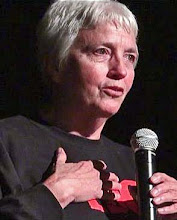They stay in a rotating-site shelter program that relies on volunteers from local faith communities, sleeping on floors of basements, halls, gyms and other religious facilities once a week at each location. It's far from perfect, but it's been the emergency housing model for dozens of communities for dozens of years (so much for "emergency").
Despite their best efforts to remain positive, moving forward from their situation will be more than challenging. Mom works, apparently a valuable employee, in a fast-food place not known for fat pay checks. Therein lies the rub....
 Problem #1, mom earns about $1000 a month. DuPage County (IL) is one of the most affluent counties in the country. The National Low Income Housing Coalition estimates Illinois renters need to earn about $2900 a month to afford a 2-br unit at 30% of the household's monthly budget, an affordable rent.
Problem #1, mom earns about $1000 a month. DuPage County (IL) is one of the most affluent counties in the country. The National Low Income Housing Coalition estimates Illinois renters need to earn about $2900 a month to afford a 2-br unit at 30% of the household's monthly budget, an affordable rent.Even fudging on affordability and squeezing into an efficiency unit (if she can find one), their income is far short of what's needed to get and maintain housing (the most basic part of escaping homelessness).
Problem #2, no car. DuPage happens to be a public transportation desert. Yeah, they have a few bus routes, but the routes are not geared for the 24/7 workday. And it means this family needs to be up and getting ready to leave their cozy single-pad-on-the-floor accommodations about 3:30 to get to work and school on time.
They have deliberately avoided owning a car which they rightly deem a huge budget-buster. One housing-assistance program they'd like to apply to almost requires a car because of the need to get to work, school and appointments.
Problem #3, they're a non-disabled family. That seems like a good thing. But it's not because hardly any post-homelessness subsidized housing is available for this segment of the population.
The U.S. Department of Housing and Urban Development, HUD, is asinine about how they define homelessness--not considering as "homeless" families/youth who've lost housing and are living temporarily with others and/or staying in motels--so Congress has been tight-fisted about resources. Ergo, DuPage County organizations lack subsidized housing options for non-disabled homeless families. It's one reason why so many motels are now the housing of (non)choice for working low-income families. Decent motels in this county are $300+ a week, exceeding this family's total monthly income.
Problem #4, the shelter season winds down May 1-October, cutting the available "interim" beds from an inadequate 140 (3 sites) to a super-inadequate 65 (1 site).
This is going to complicate their lives enormously. I've been at the summer shelter sites. They turn away women, families, and men. When they're full, that's it. And the large, transportation-challenged county makes it nigh unto impossible to get to the very scattered sites. Yikes. One site is so far from mom's work that they're just not going to be able to go that night.
Problem # 5, it's not getting better anytime soon. I'm a great believer in miracles. But this is a stretch. Mom and Mandy are hopeful, willing to work hard and to take something less than ideal.
But at this income, without subsidized housing, they simply can't afford to live in DuPage County. Or most other suburban areas, or just about anywhere.
Sad Sub-Story
One of the sad sub-stories here is that the shelter, a respected organization that really tries to do the best they can with the resources available, does not support the need to pass HR 32, the Homeless Children and Youth Act.
Maybe they've bought the argument that HUD's resources are inadequate for an expanded homeless census. Well, yeah, because HUD continues downplaying the numbers of people experiencing homelessness. Congress hears that 630,000 or so people were tallied during the "point-in-time" count. That number is probably closer to 10% of the actual homeless population. But instead of fighting for more resources by aligning the definition of homeless to other federal definitions that better reflect homelessness, HUD sticks their collective head in the sand.
So kids like Mandy, and her mom, and hundreds of thousands of kids and adults get strangled in red tape because HUD doesn't count homelessness as it's happening. They're using old-fashioned definitions based on stereotypes which totally ignore the reality of homeless families and youth. I filmed this interview (4-min) of a family in a motel that gives a pretty good idea that staying in a motel is not a vacation.
Ironically, Republican Congresswoman Judy Biggert (13, IL) represents DuPage County. She introduced HR 32, a simple and sensible 2-page bill, that would make HUD improve their definition of homelessness. Biggert's been in Congress long enough to know how things work. She's championed several significant bills to help homeless kids. Sure, Congress will need to find more money to meet a 10-fold increase in numbers of homeless people. But what's the option? Ignoring it?
Seems to me that families like Mandy and her mom will either move forward or backwards. Forward means Mandy might get to worry about things like homework instead of homelessness. Backwards sucks.







